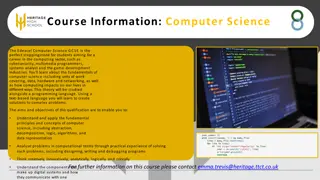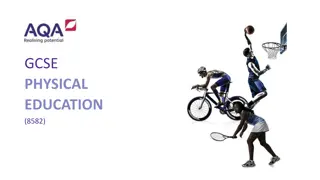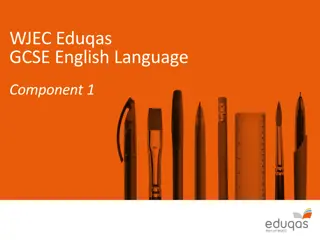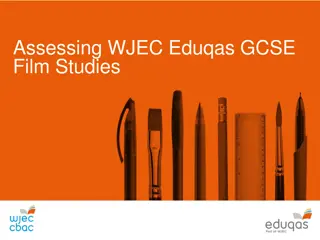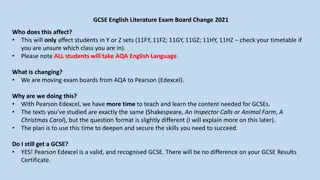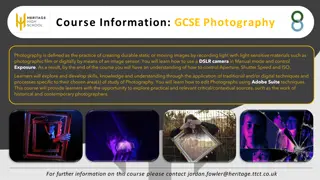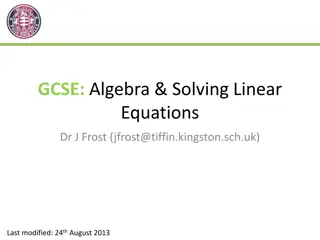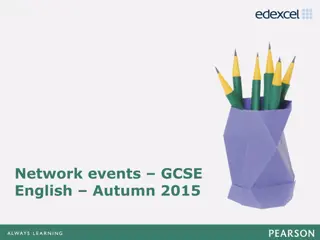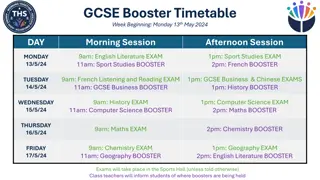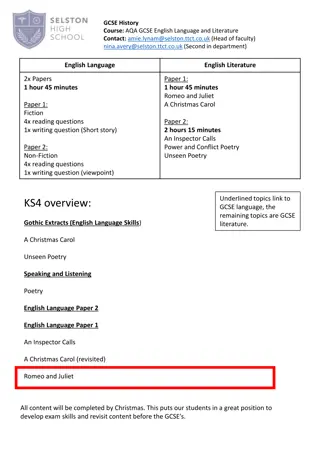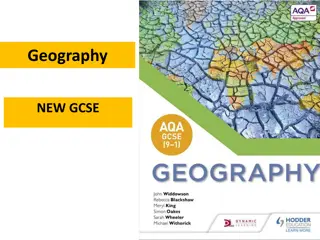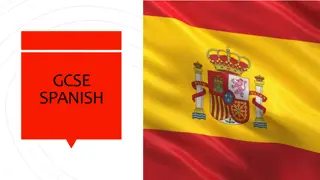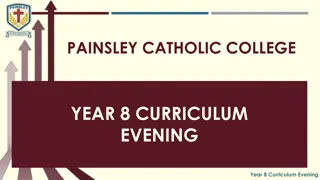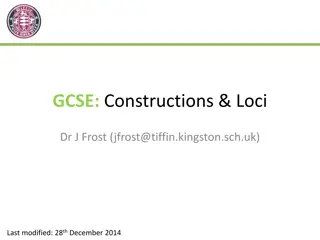GCSE PE Course Description and Assessment Overview
This GCSE PE course focuses on theoretical aspects of physical education, including the human body, diet, training, and factors affecting participation in physical activity. Practical lessons are limited, with assessments covering sports performance analysis, theoretical knowledge, and practical abilities in various sports. The course prepares students for further studies in sports science, psychology, sociology, and biology, as well as careers in teaching, physiotherapy, sports psychology, and fitness instruction.
Uploaded on Sep 13, 2024 | 0 Views
Download Presentation

Please find below an Image/Link to download the presentation.
The content on the website is provided AS IS for your information and personal use only. It may not be sold, licensed, or shared on other websites without obtaining consent from the author. Download presentation by click this link. If you encounter any issues during the download, it is possible that the publisher has removed the file from their server.
E N D
Presentation Transcript
GCSE PE GCSE PE Course description It s best to be honest from the start . THIS COURSE DOES NOT CONSIST OF A LOT OF PRACTICAL LESSONS DESPITE THE TITLE. You should be attending one club outside of school/or in extra-curricular. You will explore the ways in which parts of the human body and function during physical activity and how diet and training affect our body. For example, the skeleton, muscles, heart and lungs. You will understand about the different factors affecting participation for a range of different groups in society e.g. age, gender, ethnicity etc You will develop knowledge on the effects of drugs in sport, why performers use drugs and why there is violence in sport. You will also develop understanding of how movement skills are learnt and the characteristics of skilful movement. Option choices at Nottingham Free School
Subject Subject Skills needed/developed How the course is examined 1. 2. You must be confident in your sciences. Competent in an individual sport and a team sport. You will learn to critically analyse and evaluate physical performance. It will prepare you for sports science courses, psychology, sociology and biology. It is a stepping stone to a career in teaching, physiotherapy, sports psychology, fitness instructor and many more pathways. 1. 60% of your final mark will be assessed through 2 1 hour exams. 10% of your final mark will be assessed on a piece of coursework. 30% of your final mark will be assessed on your practical ability in 3 sports (individual and team) 2. 3. 3. 4. 5. Option choices at Nottingham Free School
Practical activities - Team Association Football not 5 a-side/futsal Powerchair Football Badminton Rowing Basketball Rugby League Blind Cricket Rugby Union Camogie Squash Cricket Table Cricket Dance (only used once) Table Tennis Gaelic Football Tennis Goal Ball Volleyball Handball Wheelchair Basketball Hockey (field) Wheelchair Rugby Hurling Lacrosse Netball Option choices at Nottingham Free School
Practical activities - Individual Amateur Boxing Sculling Athletics Skiing (must take place on snow) Badminton (cannot be assessed with doubles) Snowboarding (must take place on snow) Boccia Squash Canoeing Swimming (cannot be synchronised) Cycling Table Tennis Dance (only used once) Tennis Diving (platform diving) Trampolining Equestrian Volleyball Golf Gymnastics Kayaking (Cannot be assessed with canoeing, sculling or rowing Polybat Rock Climbing Option choices at Nottingham Free School







